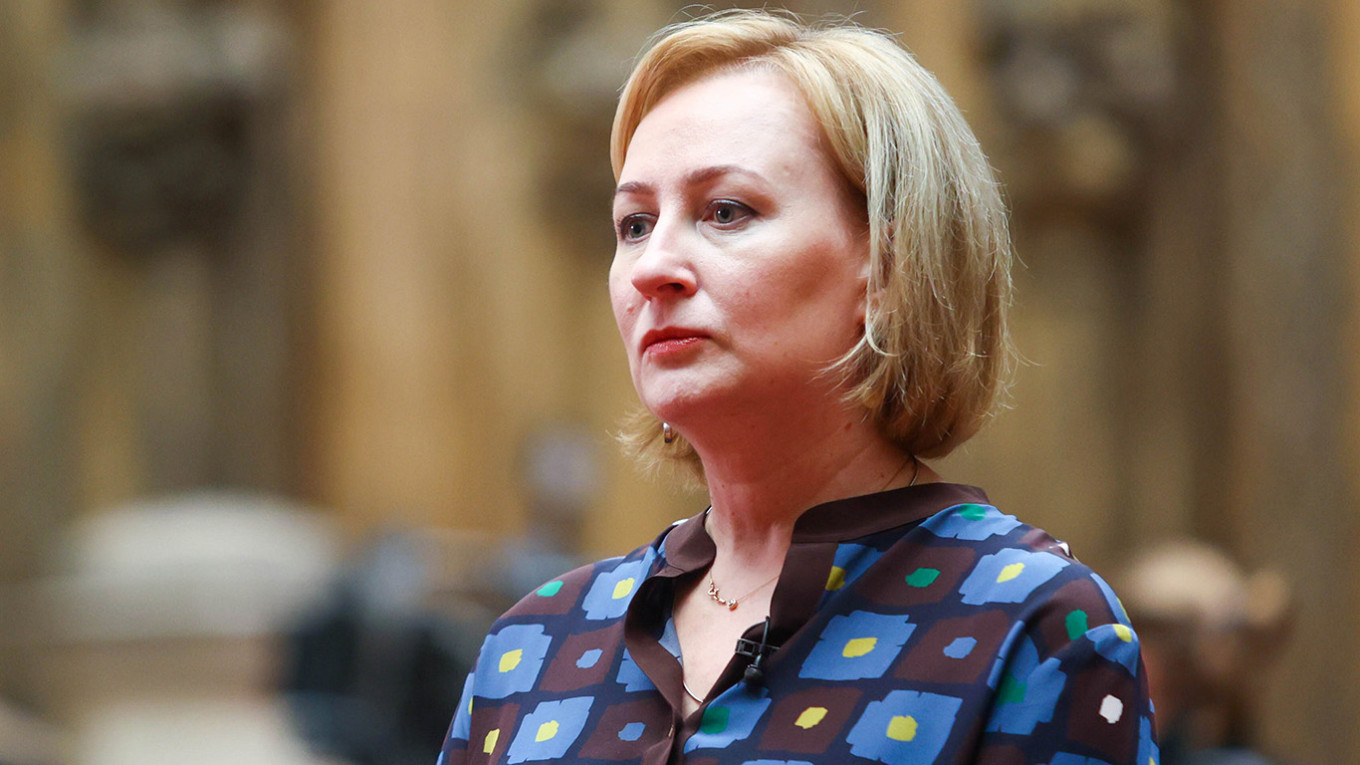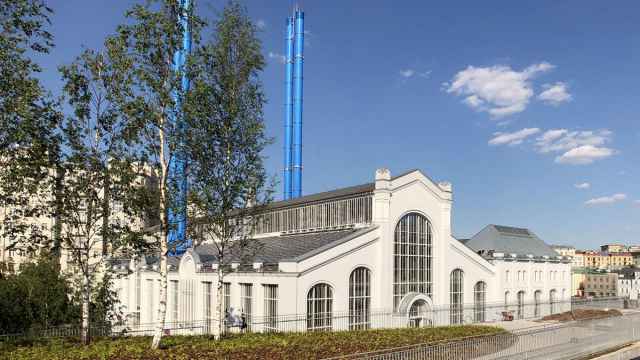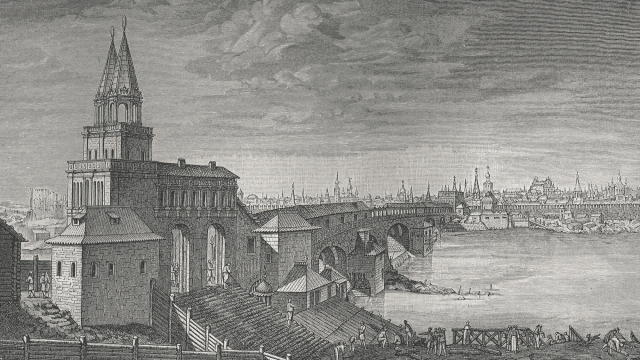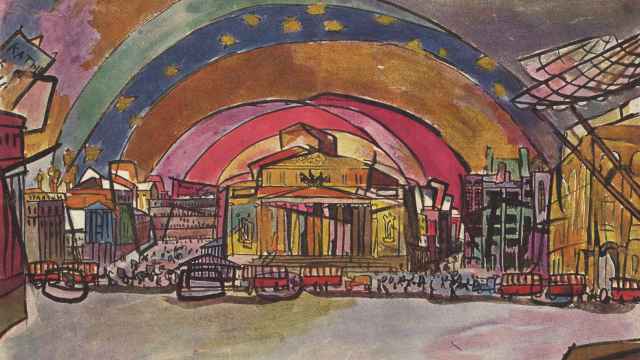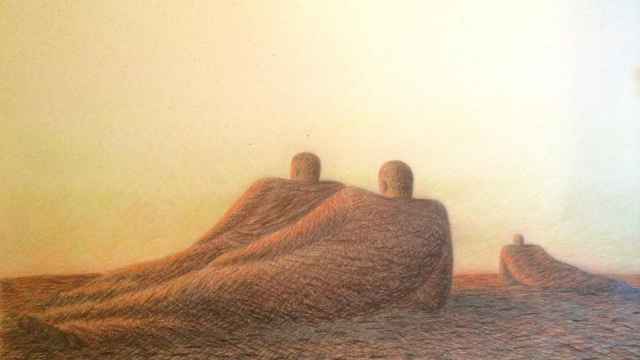“I came so I can make Pushkinsky great again,” said Olga Galaktionova, the new director of Moscow’s renowned Pushkin State Museum of Fine Arts, at her first press conference in her new role.
While not as internationally revered as the Hermitage in St. Petersburg, the Pushkin Museum houses one of Russia’s most impressive collections of European art and has long been a cultural magnet for Muscovites and tourists alike.
“First, I need to bring some order; then we’ll turn to creative work,” Galaktionova said, hinting at the disorder left behind by her predecessors.
Galaktionova is the third person to take the helm at the museum since Russia’s full-scale invasion of Ukraine — a situation that’s starting to resemble a game of musical chairs.
Her predecessor Marina Loshak resigned in March 2023 after a decade-long tenure. Under her leadership, the museum emphasized cooperation with international institutions as well as contemporary art. She managed to bring to Moscow both old masters — Raphael, Caravaggio, the Cranachs — and more modern figures like Lucian Freud and Francis Bacon.
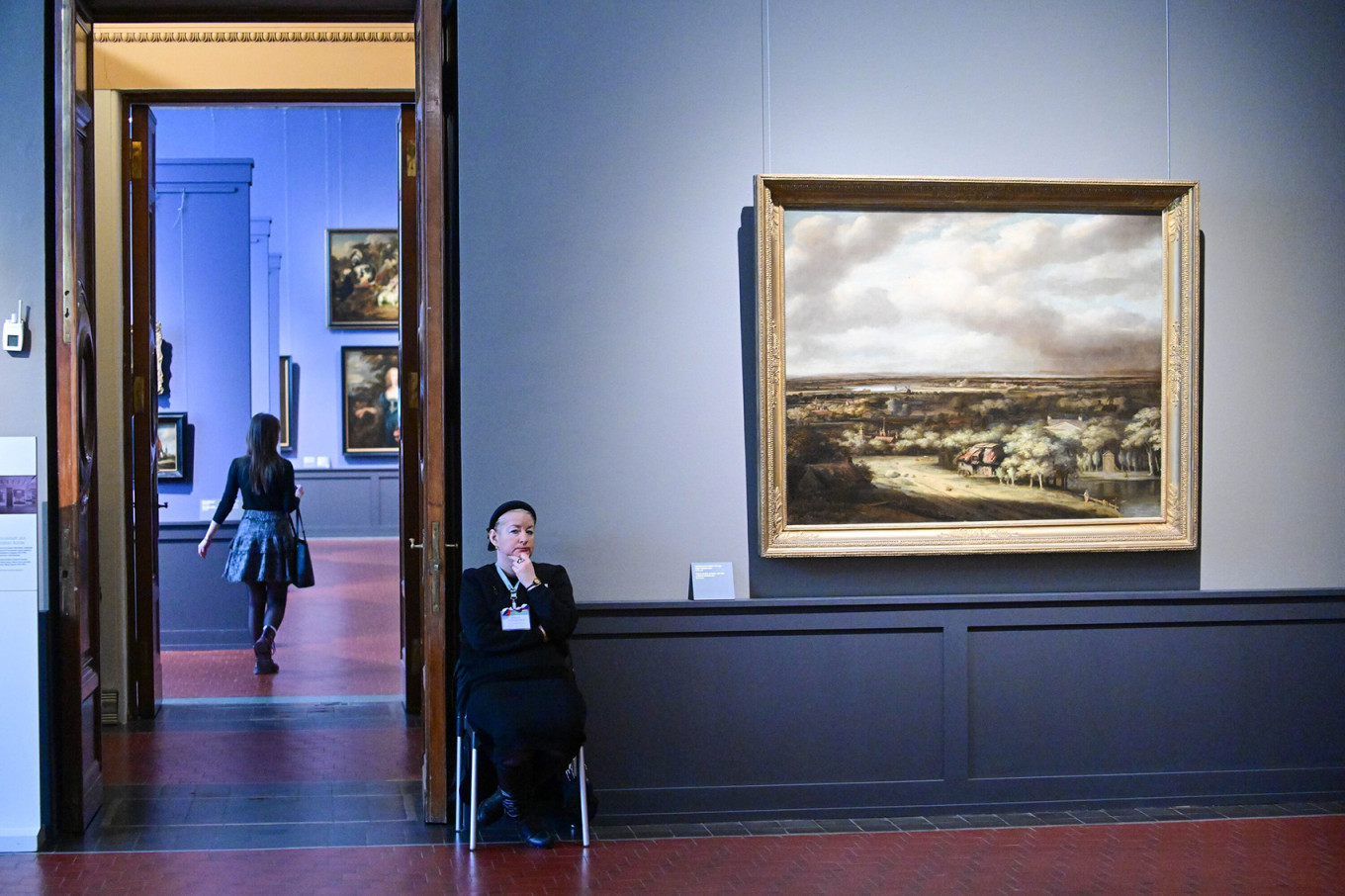
Loshak also founded a new department of video and media art and exhibited Russian contemporary artists such as Recycle Group and Viktor Pivovarov, as well as international names like Bill Viola and Cai Guo-Qiang. She spearheaded the museum’s large-scale renovation and expansion project, boldly titled “Museum City.”
But one year into the war, Loshak’s approach was no longer viable. Her partners abroad could no longer cooperate with the museum due to sanctions, while the Kremlin’s push for conservative values did not correspond with her plans to exhibit contemporary art.
Galaktionova clearly has a different approach.
“As for working with partners from unfriendly countries — let’s wait for their unequivocally friendly gestures, ones that are not just wishful thinking but actually happen. Only then will it make sense to discuss what we do next. The world cannot exist without Russian culture. That’s a fact,” she said at the press conference.
When Loshak resigned in 2023, Yelizaveta Likhacheva, who previously headed the Museum of Architecture, was named her replacement. She was an ambiguous figure, having curated an exhibition in occupied Luhansk while also criticizing the Kremlin’s decision to hand over Rublev’s famous icon “The Trinity” to the Russian Orthodox Church.
In the lead-up to her resignation, Likhacheva slammed the authorities’ decision to temporarily close the Gulag Museum, which is devoted to Stalin’s Great Terror and its victims.
In November 2024, she called the move “a stupidity bordering on a crime,” ironically quoting Stalin himself. She resigned in January 2025, three days after the dismissal of the Gulag Museum’s longtime director Roman Romanov.
“You see, if you work at a state institution, you always have to be mentally prepared to be sacked at any moment. Just like that — at the snap of a finger,” she said in an interview with Moskvich magazine following her resignation.
Before taking over at the Pushkin Museum, Galaktionova headed ROSIZO, the Culture Ministry exhibition arm which has its own art collection, since 2021.
She is completely aligned with the government agenda and some claim she has ties to the conservative cultural Telegram channel Zakuliska (“Behind the Curtains”).
Similar changes in leadership have swept through all of Russia’s leading museums after 2022.
Zelfira Tregulova, the longtime director of the Tretyakov Gallery, was replaced by newcomer Yelena Pronicheva — a former State Duma employee and daughter of an FSB general. Meanwhile, Alla Manilova, a former deputy culture minister, was appointed director of the Russian Museum in St. Petersburg.
At her first press conference in her new role, Galaktionova vowed to “support healthy contemporary art,” adding that “we need to find new names.”
What exactly she meant by that remains to be seen — but it doesn’t sound especially promising for contemporary art as we’ve known it.
A Message from The Moscow Times:
Dear readers,
We are facing unprecedented challenges. Russia's Prosecutor General's Office has designated The Moscow Times as an "undesirable" organization, criminalizing our work and putting our staff at risk of prosecution. This follows our earlier unjust labeling as a "foreign agent."
These actions are direct attempts to silence independent journalism in Russia. The authorities claim our work "discredits the decisions of the Russian leadership." We see things differently: we strive to provide accurate, unbiased reporting on Russia.
We, the journalists of The Moscow Times, refuse to be silenced. But to continue our work, we need your help.
Your support, no matter how small, makes a world of difference. If you can, please support us monthly starting from just $2. It's quick to set up, and every contribution makes a significant impact.
By supporting The Moscow Times, you're defending open, independent journalism in the face of repression. Thank you for standing with us.
Remind me later.


